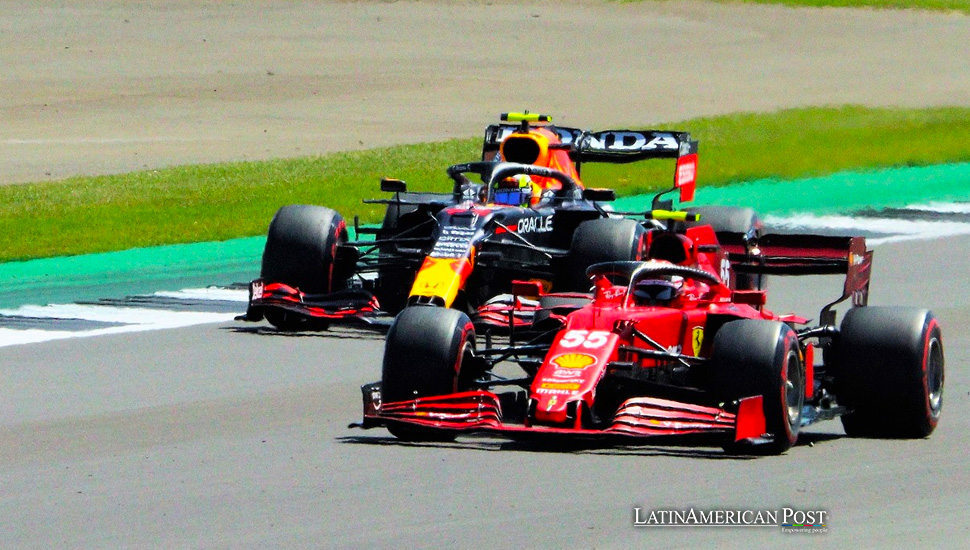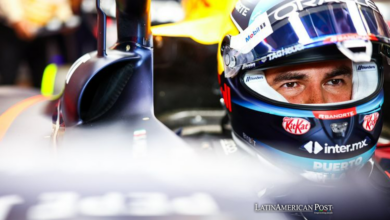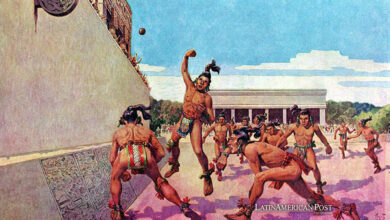Speed and Glory: The Top 10 Latin American Formula 1 Legends Unveiled

Discover the elite of Latin American Formula 1 racing. From Senna’s mastery to Montoya’s bold maneuvers, we unveil the top 10 drivers who have left an indelible mark on the sport, ranking them by their achievements, including titles, wins, and points.
Formula 1, the pinnacle of motorsport, has been graced by some of the most talented drivers from around the globe. Among them, Latin American drivers have shone brightly, leaving an indelible mark with their fearless racing style, technical prowess, and unforgettable victories. Here, we celebrate the top 10 Latin American Formula 1 drivers of all time, ranked by their achievements in titles, wins, and points.
1. Brazil’s Ayrton Senna: Beyond the Championships
With three World Championships (1988, 1990, 1991) and 41 Grand Prix victories, Ayrton Senna is the most significant Latin American F1 driver and one of the best in the sport’s history. His intense rivalry with Alain Prost and incredible skill in wet conditions remain legendary.
Senna’s journey to becoming a Formula 1 legend began in the karting circuits of Brazil, showcasing a natural talent and an unyielding determination to succeed. His move to Formula 1 in 1984 was met with immediate attention as his raw speed, and ability to extract performance from his machinery became evident. Senna’s rivalry with Alain Prost defined an era of Formula 1, pushing both drivers to their limits. Senna’s tragic death at the San Marino Grand Prix in 1994 shocked the world, leading to significant safety improvements in the sport. His legacy is in his racing achievements and his humanitarian efforts, with the Ayrton Senna Institute continuing to support educational initiatives in Brazil.
2. Argentina’s Juan Manuel Fangio: The Maestro’s Era
The Argentine maestro claimed five World Championships in the 1950s (1951, 1954, 1955, 1956, 1957), a record that stood for 46 years. With 24 wins from just 52 starts, Fangio’s win percentage is astonishing, showcasing his dominance in the sport’s early days.
Fangio’s era in the 1950s was one of dominance and skill, as he raced for Alfa Romeo, Ferrari, Mercedes-Benz, and Maserati. Fangio’s ability to win with different teams is unparalleled, demonstrating his adaptability and driving genius. Beyond his record championships and wins, Fangio’s sportsmanship and gentlemanly conduct set a standard for future generations. His kidnapping by Cuban rebels in 1958 and subsequent release without harm added to his legend, highlighting his universal respect and appeal.
3. Brazil’s Nelson Piquet: The Strategic Mind
A three-time World Champion (1981, 1983, 1987), Piquet’s career spanned 204 races, with 23 wins and 60 podiums. Known for his strategic mind and technical feedback, he was crucial in advancing F1 car development.
Piquet’s three World Championships are a testament to his strategic approach to racing, often outthinking his competitors and making pivotal decisions in race strategy. Piquet was instrumental in car technology development, working closely with engineers to push aerodynamics and engine performance advancements. His post-racing career as a team owner and mentor to young drivers has ensured his continued influence on the sport.
4. Brazil’s Emerson Fittipaldi: Opening Doors
Fittipaldi was a trailblazer for Brazilian drivers in Formula 1, winning two World Championships (1972, 1974). With 14 wins and 35 podium finishes, he was known for his smooth driving style and fierce competitiveness.
Fittipaldi’s success in the early 1970s brought him individual accolades and opened the door for a wave of Brazilian talent in Formula 1. Fittipaldi’s move to start his team, Fittipaldi Automotive, in the late ’70s, though ultimately not as successful as his driving career, showed his passion and dedication to the sport. His involvement in motorsport continues, with roles in promoting racing in South America and nurturing new talent.
5. Argentina’s Carlos Reutemann: The Nearly Man
Reutemann competed in 146 Grand Prix, securing 12 wins and finishing runner-up in the 1981 World Championship. His career is remembered for its high points, including victories for Williams and Ferrari and the narrow miss of a world title.
Reutemann’s career is often remembered for its compelling potential and the heartbreak of narrowly missing the World Championship in 1981. His political career post-racing, serving as a senator and governor in Argentina, demonstrated his continued leadership and influence beyond the racetrack. Reutemann’s complex personality and enigmatic choices, such as his sudden withdrawal from the sport, have kept him a fascinating figure in F1 history.
6. Brazil’s Rubens Barrichello: The Journeyman’s Tale
The most experienced driver in F1 history, with 322 starts, Barrichello won 11 races and stood on the podium 68 times. Though he never won a World Championship, his longevity and consistency in the sport are commendable.
Barrichello’s record for the most race starts showcases his durability and adaptability in a sport known for its relentless evolution. His tenure with Ferrari, supporting Michael Schumacher, was marked by controversy over team orders and moments of personal triumph. Barrichello’s later years in Formula 1, mentoring younger drivers and competing with smaller teams, underscored his love for racing and contribution to the sport’s community.
7. Brazil’s Felipe Massa: A Heartbeat from Glory
Massa came agonizingly close to winning the World Championship 2008, finishing just one point behind Lewis Hamilton. With 11 wins and 41 podiums, his career was marked by speed and resilience, making him one of Brazil’s finest.
Massa’s near-miss of the 2008 World Championship in a dramatic final race in Brazil is one of the most poignant moments in Formula 1 history. Massa’s resilience after a life-threatening injury in 2009 and his return to racing test his determination and passion. His leadership and mentorship roles within teams like Williams demonstrated his experience and wisdom, contributing to developing future talents.
8. Colombia’s Juan Pablo Montoya: The Firebrand
Montoya is known for his aggressive driving style and spectacular overtakes. With seven wins and 30 podiums, he significantly impacted his relatively short F1 career before moving to NASCAR and IndyCar.
Montoya’s aggressive driving style and fearless overtakes made him a fan favorite and a formidable competitor on the track. His transition to NASCAR and IndyCar after Formula 1 showcased his versatility as a driver and his desire to challenge himself in different racing disciplines. Montoya’s success in the Indy 500 and the Rolex 24 at Daytona further cements his legacy as a versatile and talented driver.
9. Argentina’s José Froilán González: Ferrari’s First Victor
Nicknamed “El Cabezón” (The Big Head), González gave Ferrari its first Formula 1 victory in 1951. With two wins and 15 podiums, his contribution to F1, especially Ferrari’s early success, is historic. González holds a special place in the annals of Formula 1 history as the man who delivered Ferrari’s first-ever Grand Prix victory in 1951 at the British Grand Prix. His robust and aggressive driving style and physical strength made him a formidable competitor on the track. Beyond this historic win, González’s career was marked by consistency and tenacity, securing two Grand Prix victories and numerous podium finishes throughout his tenure in the sport. Though his name might not resonate as widely as some of his contemporaries, González’s contribution to Ferrari’s legacy and pioneering role in the early years of Formula 1 racing underscore his significant impact on the sport. His achievements during the golden era of motorsport paved the way for future generations of drivers and helped establish Ferrari as a dominant force in Formula 1 racing.
10. Mexico’s Pedro Rodríguez: The Enduring Legacy
Rodríguez is remembered for his bravery and skill in adverse conditions. With two wins and seven podiums, his talent shone brightly in a career cut tragically short by his death in a racing accident in 1971.
Although cut tragically short, Rodríguez’s career in Formula 1 left an indelible mark on the sport, demonstrating the courage and skill of a driver often considered one of the best in wet conditions. His victories, particularly at the challenging Spa-Francorchamps in 1970, showcased his exceptional talent and fearless approach to racing. Beyond his Formula 1 career, Pedro’s success in endurance racing, including a memorable win at the 1968 24 Hours of Le Mans, attests to his versatility and dedication as a driver.
Also read: What is the Reason for the Sporting Slump of ‘Checo’ Pérez in Formula 1?
These drivers represent the pinnacle of Latin American talent in Formula 1, combining skill, courage, and a relentless drive for victory. Their legacies inspire new generations of drivers from the region, proving that Latin America’s passion for motorsport burns as brightly as ever.





